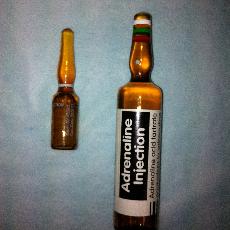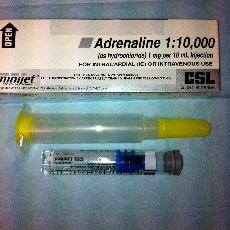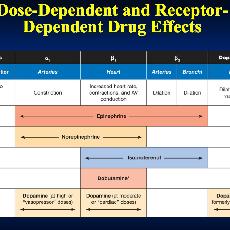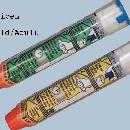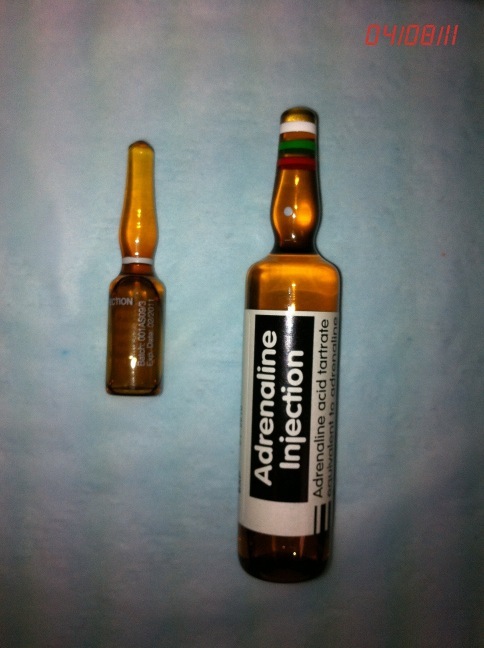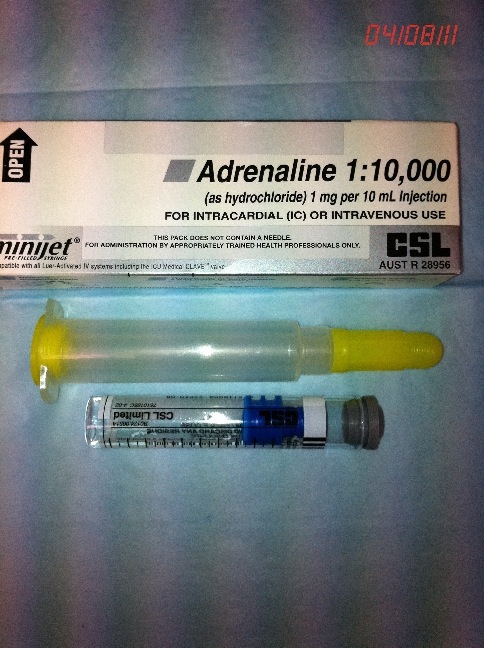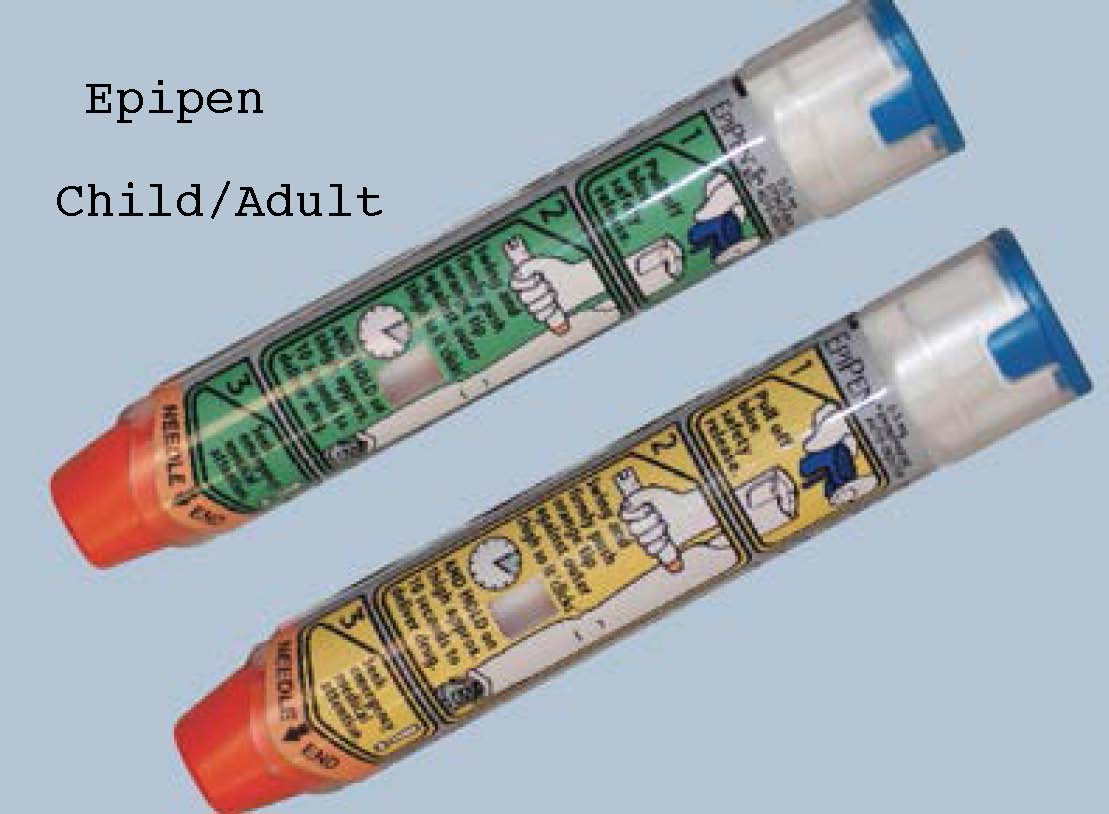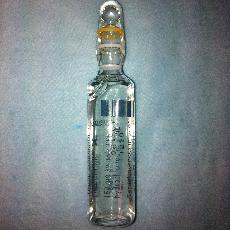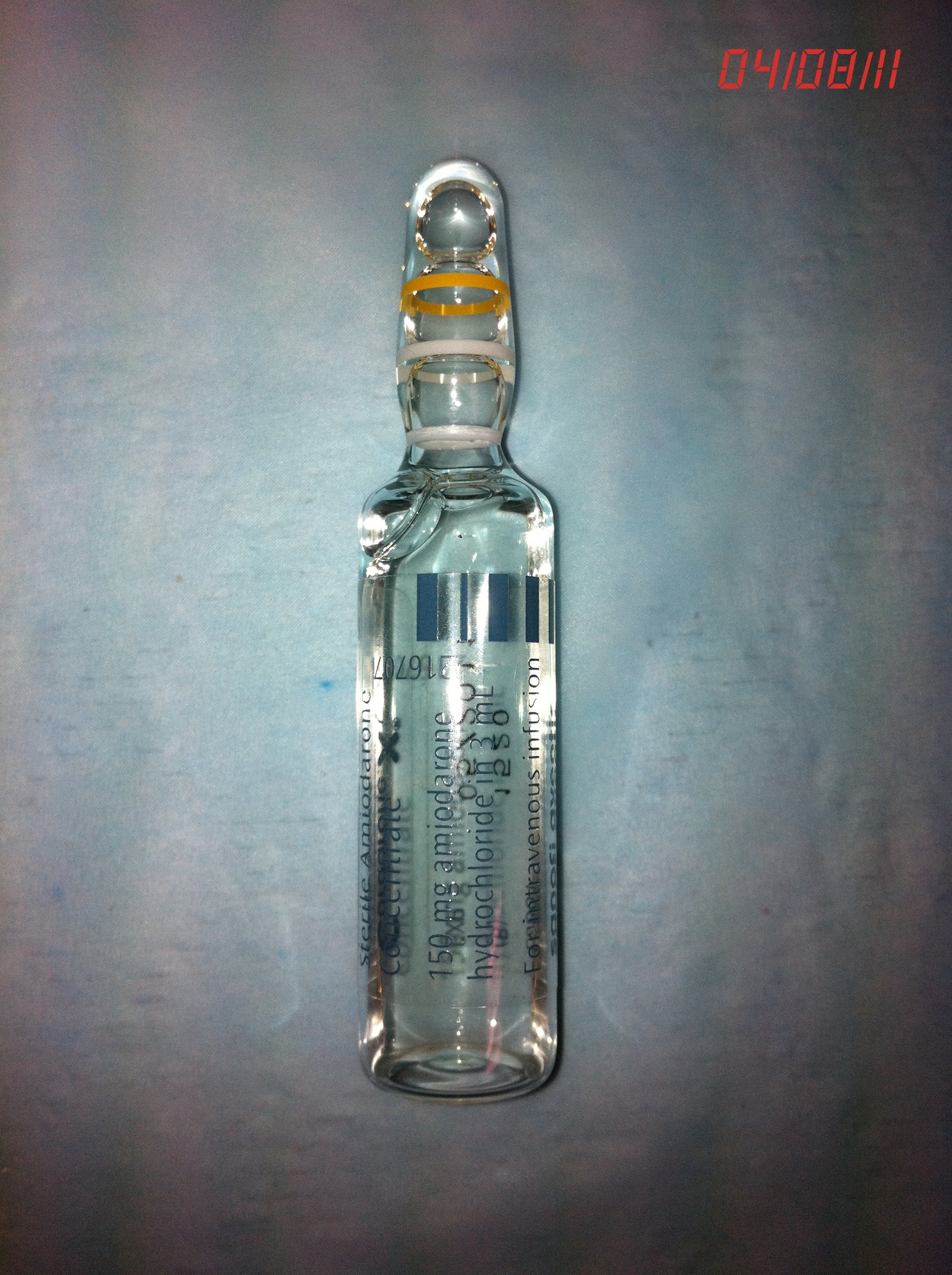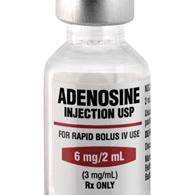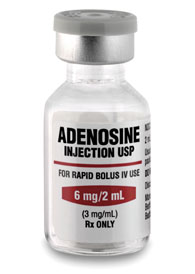PALS Core Drugs
Paediatrics Drug Calculator - Starship Hospital
Adrenaline
Indications Dose
Cardiac arrest of any cause Second-line treatment for cardiogenic shock.
As an alternative to external pacing for bradycardia. | 10 mcg kg-1 IV / IO every 3-5 min
0.01–0.5 mcg kg-1 min-1
0.1–1 mcg kg-1 min-1 |
Anaphylaxis 0.15-0.3mg IM or 1mcg kg-1 IV in severe cases
Uses
Adrenaline is available in two dilutions:
· 1 in 10 000 (10 ml contains 1 mg of adrenaline).
· 1 in 1 000 (1 ml contains 1 mg of adrenaline).
During cardiac arrest, if intravascular (IV) access is difficult to be achieved, the IO route is now recommended as an alternative with the same IV dose.
Following the return of spontaneous circulation (ROSC), adrenaline may induce various arrhythmias like tachycardia (ventricular tachycardia (VT) and ventricular fibrillation (VF) which may lead to myocardial ischaemia. Once a perfusing rhythm is established, and if further adrenaline is required when other inotropic drugs (such as dobutamine) have failed to improve the cardiac output it is then given by infusion, 0.05-1 mcg kg-1 min-1. Start the infusion at a low rate and titrate to the mean arterial pressure and/or cardiac output.
Adrenalin is also indicated for symptomatic bradycardia which has not responded to atropine, and external pacing is unavailable or unsuccessful. The dose range is usually 2–10 mcg min-1.
Adrenaline is a direct-acting sympathomimetic amine that possesses both alpha (α) - and beta (β) adrenergic activity. In the dose used in resuscitation, adrenaline stimulates both alpha (α) and beta (ß) receptors to produce peripheral vasoconstriction. This increases systemic vascular resistance (SVR) during CPR and improves both cerebral and coronary perfusion pressures.
In the beating heart, the action of adrenaline on β1 receptors increases heart rate and force of contraction. This increases myocardial oxygen consumption which may worsen ischaemia. Adrenaline increases myocardial excitability and is therefore potentially arrhythmogenic, especially during myocardial ischaemia. Adrenaline may also cause GIT ischaemia.
|
Adrenaline 1:1000 & 1:10,000 |
Adrenaline mini jet |
Inotropic drugs |
Epipen, Child/Adult |
Amiodarone
Indications Dose
Refractory VF/ pulseless VT 5mg kg-1 mg IV
Control of haemodynamically stable VT, polymorphic VT, and broad-complex tachycardia of uncertain origin Paroxysmal SVT when adenosine, vagal maneuvers, and AV nodal blockade are unsuccessful. To control the rapid ventricular rate caused by accessory pathway conduction (WPW) in pre-excited atrial arrhythmias | 5mg kg-1 IV over 20-60 min. Repeat to max 15mg kg-1 over 24 hrs. |
Use
Paradoxically amiodarone can be arrhythmogenic, especially if given together with other drugs that prolong the QT interval. But, it has a lower incidence of pro-arrhythmic effects compared to other antiarrhythmic agents if used under similar situations.
The main side effects are hypotension due to the solvent Polysorbate, which causes histamine release, and bradycardia, which may not be noticed till ROSC.
The side effects associated with prolonged oral use are photosensitivity, thyroid & hepatic dysfunction, peripheral neuropathy & pulmonary inflammation/fibrosis.
An initial intravenous bolus dose of 5 mg kg-1 amiodarone, is considered if VF/VT persists after the third shock.
If a peripheral vein is used, amiodarone may cause thrombophlebitis; a central vein is preferable otherwise use a large peripheral vein followed by a 10 ml flush.
For tachyarrythmias, amiodarone is given as 5 mg kg-1 intravenously over 45-60 min. This loading dose is followed by an infusion of max 15mg kg-1 over 24 h.
In cases of severely impaired heart function, intravenous amiodarone is preferable to other antiarrhythmic drugs for atrial and ventricular arrhythmias. Hypotension and bradycardia can be prevented by slowing the rate of the infusion.
The plasma levels of warfarin and digoxin are increased by amiodarone; therefore their doses should be readjusted. INR for warfarin and digoxin levels should be monitored.
Amiodarone has an additive effect to that of beta-blockers and calcium channel blockers on the degree of AV nodal blockade and hypotension.
Actions:
Amiodarone is a membrane stabilising antiarrhythmic drug that increases the duration of both the refractory period and action potential in the myocardium.
AV conduction and accessory pathway conduction is slowed. Amiodarone has a very mild negative inotropic action and may cause peripheral vasodilation by non-competitive alfa blockade.
|
Amiodarone inj 150mg |
Atropine
Indications Dose
Sinus, atrial, or nodal bradycardia when the patient is symptomatic 0.02mg kg-1 IV to a maximum of 0.5-1 mg
Use:
Conduction disturbance or bradycardia associated with the high vagal activity may respond to atropine (e.g oculocardiac reflex).
There is no conclusive evidence that atropine is of any value in asystolic cardiac arrest.
Actions:
Atropine antagonizes the neurotransmitter acetylcholine at muscarinic receptors. Thus it blocks the effect of the vagus nerve on both the SA and AV nodes, increasing sinus automaticity and facilitating AV nodal conduction.
Side-effects of atropine are dose-related (blurred vision, dry mouth and urinary retention).
After cardiac arrest, do not attribute dilated pupils solely to atropine.
Adenosine
Indications Dose
Stable narrow-complex tachycardia (or broad-complex tachycardia known to be a supraventricular tachycardia (SVT) with bundle branch block) which is not responding to vagal maneuvers. Note: While the limb is elevated, Adenosine must be injected rapidly IV followed immediately with a 10-20ml isotonic saline flush. IV canulae should be inserted in the antecubital veins. It has a half-life of 5-10 sec due to rapid enzymatic degradation (adenosine deaminase). | 0.1 mg kg-1, 0.2 mg kg-1 IV |
Use:
Adenosine should be administered in a monitored environment only (e.g. coronary care unit, critical care unit, operating room, or emergency department); it may cause a transient period of ventricular asystole.
It may be used as a diagnostic tool, and unlike verapamil, it can be given to a patient with a broad-complex tachycardia of uncertain aetiology. The ventricular rate in SVT will be slowed but ventricular tachycardia (VT) is unchanged.
Adenosine is effective in terminating the re-entry tachycardias that originate in the AV node (SVT). It does not have significant negative inotropic effects and does not cause decreased cardiac output and hypotension, and may be given safely with a beta-blockers on board.
Patients may encounter transient unpleasant side-effects: nausea, flushing, and chest discomfort, sense of impending doom and should be clearly explained to them.
Theophylline (aminophylline) and related compounds antagonise adenosine. Patients on dipyridamole or carbamazepine or those with denervated (transplanted) hearts display a markedly hazardous exaggerated effect.
Adenosine is contraindicated in patients with WPW syndrome, as the conduction blockade through the AV node by adenosine may promote conduction down the accessory pathway. In the presence of pre-excited atrial fibrillation or flutter, this may cause a dangerously rapid ventricular response.
Initial dose is 0.1mg kg-1 ; if unsuccessful follow this with 0.2 mg kg-1 after 1-2 min.
|
Adenosine |
Dopamine
Indications Dose
Hypotension in the absence of hypovolaemia 2-20 mcg kg-1 min-1
Use
There is a marked individual variability in the response to dopamine. Dopamine increases urine volume but has no beneficial effect on renal function as such. Dopamine should be given via a
central vein, using an infusion pump. Its use requires invasive haemodynamic monitoring in an intensive care or high-dependency care area.
Actions
Dopamine is the precursor of the naturally-occurring catecholamines adrenaline and noradrenaline. It has a dose-dependent positive inotropic effect that is mediated by dopamine (D1 and D2), α1- and β1- receptors.
Theoretically, low infusion rates (1-2 mcg kg-1 min-1) cause renal artery vasodilation (via D1 receptors), and increased glomerular filtration rate and sodium excretion.
Intermediate infusion rates (2-10 mcg kg-1 min-1) increase cardiac output and
systolic blood pressure (β1). With higher infusion rates (> 10 mcg kg- 1 min-1)
α1- and α2- effects dominate causing vasoconstriction.
Dopamine may cause cardiac arrhythmias, increase myocardial oxygen demand and worsen ischaemia. Dopamine and dobutamine may be administered together and titrated to effect.
Dobutamine
Indications Dose
Hypotension not caused by hypovolaemia 2-20 mcg kg-1 min-1
Cardiogenic shock
Use
Dobutamine is the inotropic drug of choice in the post-resuscitation period. It is indicated in poor cardiac output states with compromised tissue perfusion. It is useful in pulmonary oedema associated with a low BP which contraindicates the use of other vasodilators.
Close haemodynamic monitoring of the patient is essential and should be undertaken in a high-dependency or intensive care area. Tachycardia and cardiac arrhythmias may occur, particularly at higher doses. Reduce the infusion slowly to avoid hypotension.
The drug has a short half-life and is given by intravenous infusion using an infusion pump. The dose range is 5-20 mcg kg-1 min-1 titrated to effect.
Actions
A synthetic catecholamine with ß1 (positive inotropic effect on myocardium) ß2,( peripheral vasodilatation) and α1 -receptors stimulant effect. The net effect is to increase cardiac output. Renal blood flow is usually increased.
Dobutamine increases myocardial oxygen requirements less than other inotropic agents and is less arrhythmogenic.
Magnesium
Indications Dose
Shock refractory ventricular fibrillation in the presence of 25-50 mg kg-1 bolus IV/IO
hypomagnesaemia
Ventricular tachyarrhythmias in the presence of hypomagnesaemia 25-50 mg kg-1 over 10 min IV
Torsade de pointes
Intravenous magnesium is a safe and often effective treatment for ventricular tachyarrhythmias as Torsades de pointes.
Magnesium is excreted by the kidneys. It inhibits smooth muscle contraction, leading to vasodilation, and dose-related hypotension; this is a transient effect which normally responds to intravenous fluids and vasopressors.
Actions
Magnesium is a major constituent of many enzymes in the body, especially those needed for the production of ATP in the muscle cells. It inhibits acetylcholine release and reduces the sensitivity of the motor end plate. The normal plasma level of magnesium is 0.80–1.00 mmol l-1.
Magnesium deficiency frequently co-exists with other electrolyte disturbances, particularly hypokalaemia. Thus digoxin toxicity may be manifested even within the therapeutic digoxin level.
Glucose
10-20ml kg-1 of 5% glucose
5-10ml kg-1 of 10% glucose
2-4ml kg-1 of 25% glucose (in Central or large vein)
Drugs Summary

| « Shock | Anaphylaxis » |



